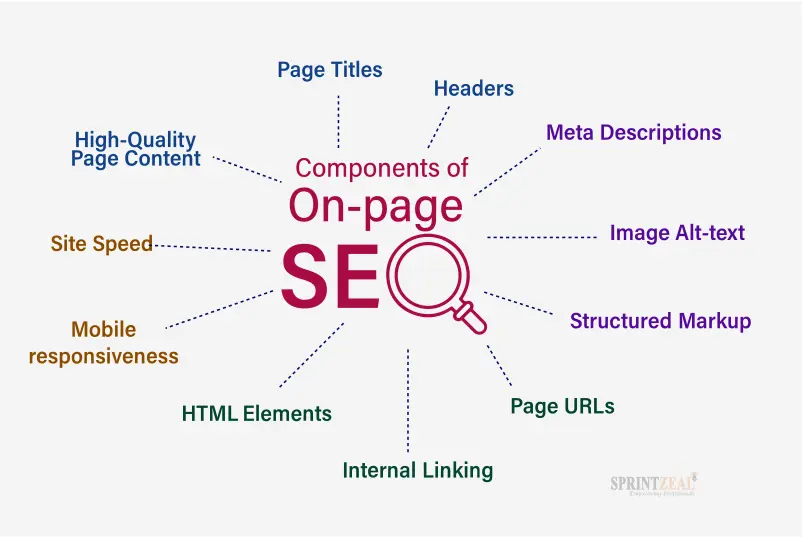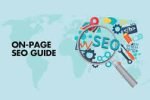If you want your website to rank higher on Google, drive more organic traffic, and improve user experience, you need to focus on On-Page SEO. But what exactly is it, and why does it matter? Let’s dive in!
1️⃣ What is On-Page SEO?
On-Page SEO refers to the optimizations you make directly on your website to help search engines understand your content better. These optimizations improve your search rankings, user experience, and overall website performance.

✅ Key Elements of On-Page SEO:
✔ Keyword Optimization – Using relevant keywords naturally in content, headings, and meta tags
✔ Title Tags & Meta Descriptions – Crafting compelling titles and descriptions for better CTR
✔ Content Quality & Readability – Writing informative, engaging, and easy-to-read content
✔ Internal Linking – Connecting pages within your website for better navigation
✔ Image Optimization – Using compressed images and adding descriptive alt text
✔ Page Speed & Mobile Friendliness – Ensuring fast loading times and mobile responsiveness
🚀 Example:
If you’re writing a blog post about “Best SEO Practices for 2024”, you should:
✔ Include keywords like SEO best practices, on-page SEO, and keyword optimization naturally
✔ Add H1, H2, and H3 headings for structure
✔ Optimize images with alt text
✔ Link to relevant pages like How to Write SEO-Friendly Content
2️⃣ Why is On-Page SEO Important?
On-Page SEO is essential because it helps both search engines and users understand your website’s content. Here’s why it matters:
🔹 1. Higher Google Rankings
Google uses On-Page SEO factors like keywords, content quality, and meta descriptions to determine your search position. Better optimization means higher rankings!
🔹 2. Improved User Experience (UX)
A well-structured, fast-loading, and mobile-friendly website keeps visitors engaged, reducing bounce rates and increasing time spent on your site.
🔹 3. Better Click-Through Rates (CTR)
Optimized title tags and meta descriptions attract more clicks from search results, leading to higher traffic.
🔹 4. Increased Website Traffic
Higher rankings + better CTR = More organic traffic! On-Page SEO brings consistent, long-term traffic without paid ads.
🔹 5. Boosts Conversion Rates
A well-optimized website guides users effectively, leading to more conversions, whether it’s sales, sign-ups, or inquiries.

3️⃣ How to Implement On-Page SEO?
✔ Perform Keyword Research – Use tools like Google Keyword Planner to find relevant search terms
✔ Write High-Quality Content – Ensure your content is valuable, engaging, and well-structured
✔ Optimize Headings & Meta Tags – Use keywords naturally in H1, H2, and H3 tags
✔ Improve Internal Linking – Link to other useful pages to improve navigation and ranking
✔ Enhance Mobile Responsiveness – Ensure your site is fully optimized for mobile users
🔗 Learn More: How to Optimize Your Website’s Navigation for SEO
Final Thoughts: Why You Should Prioritize On-Page SEO
Without On-Page SEO, even the best content can struggle to rank. By optimizing keywords, headings, images, and links, you can improve your website’s visibility, traffic, and user engagement.
🔥 Want to boost your SEO rankings?
Our experts at Social Media Max specialize in SEO Optimization, Web Development, and Digital Marketing. Call 0161 399 3517 or email Syed_66@hotmail.com to get started!

